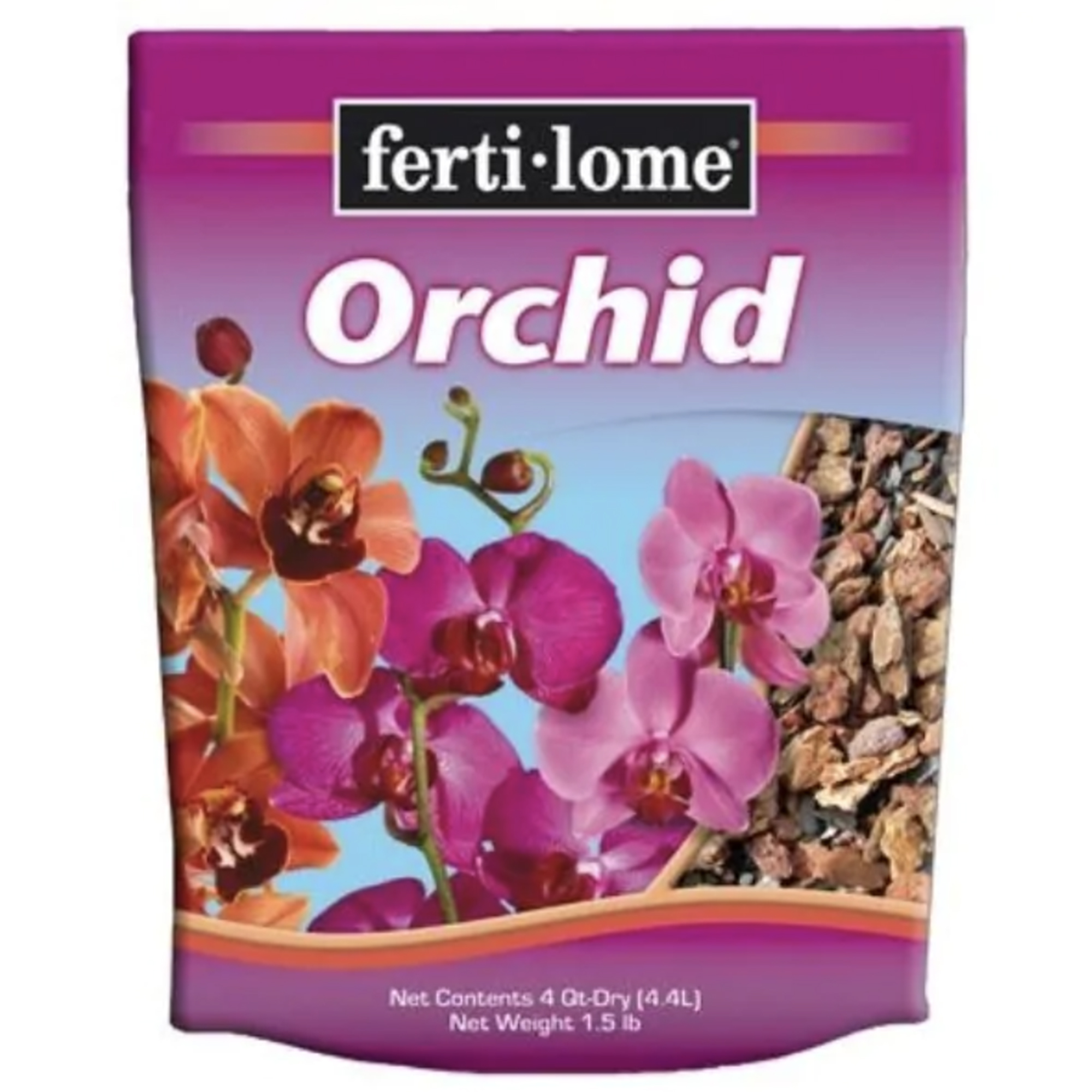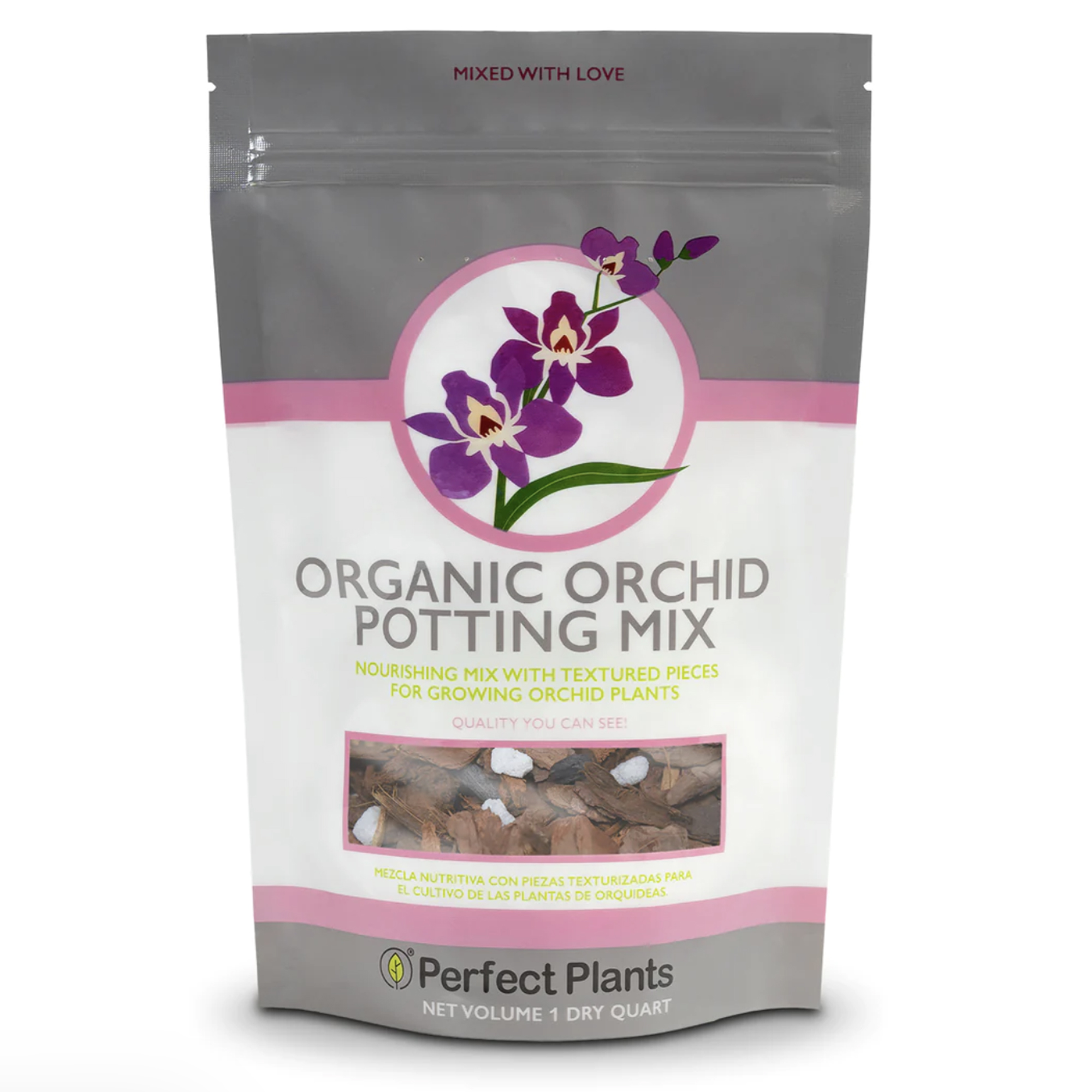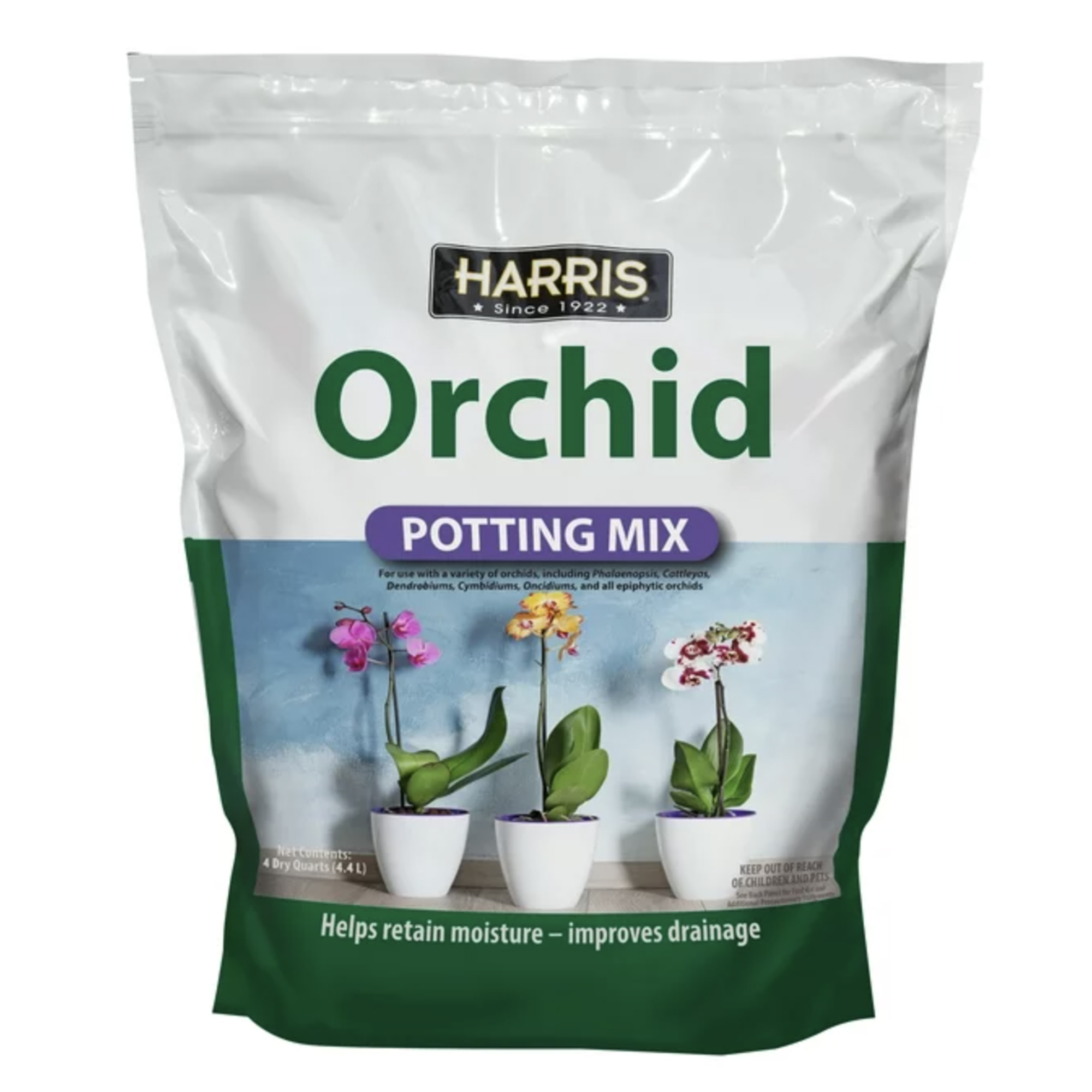Why are my orchid flowers falling off? These houseplant experts have the answers
What's happening to your orchid flowers and how to fix the problem

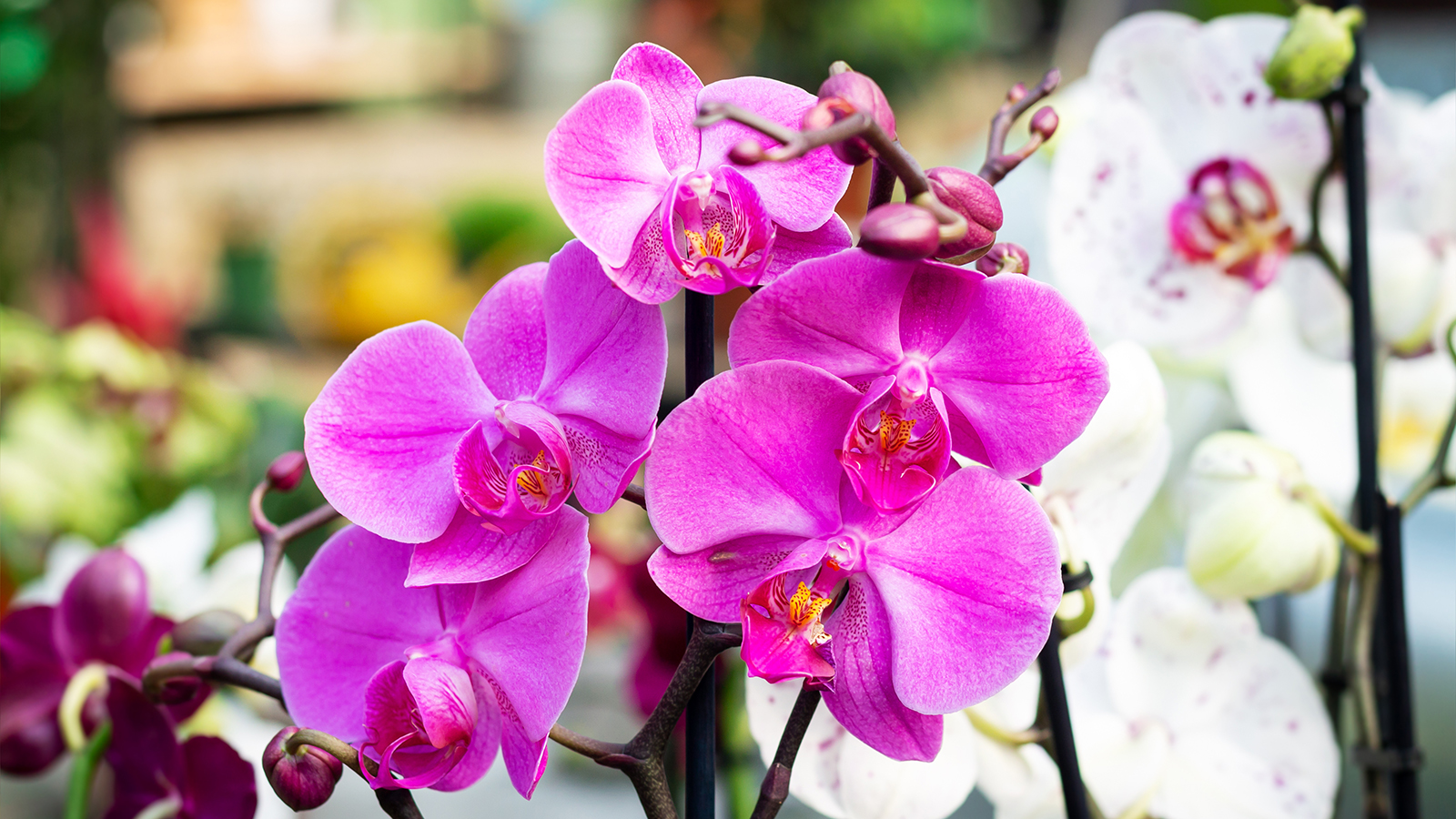
Design expertise in your inbox – from inspiring decorating ideas and beautiful celebrity homes to practical gardening advice and shopping round-ups.
You are now subscribed
Your newsletter sign-up was successful
Want to add more newsletters?

Twice a week
Homes&Gardens
The ultimate interior design resource from the world's leading experts - discover inspiring decorating ideas, color scheming know-how, garden inspiration and shopping expertise.

Once a week
In The Loop from Next In Design
Members of the Next in Design Circle will receive In the Loop, our weekly email filled with trade news, names to know and spotlight moments. Together we’re building a brighter design future.

Twice a week
Cucina
Whether you’re passionate about hosting exquisite dinners, experimenting with culinary trends, or perfecting your kitchen's design with timeless elegance and innovative functionality, this newsletter is here to inspire
If you're experiencing blooms falling off your orchid, there's a chance your plant is in trouble.
Orchids do drop their flowers once their flowering season is over and they enter hibernation. If your plant is otherwise healthy and has had a normal flowering season, you have nothing to worry about.
However, orchids also drop flowers when they are stressed, and in many cases flowers dropping is the first sign that your orchid may not survive in its current environment.
Orchid care can be daunting, especially if you're a plant novice. Orchids are unlike most other plants you'll grow indoors, with several unique requirements. Once you've mastered catering to these specialized needs, your orchids will be healthy and blooming again.
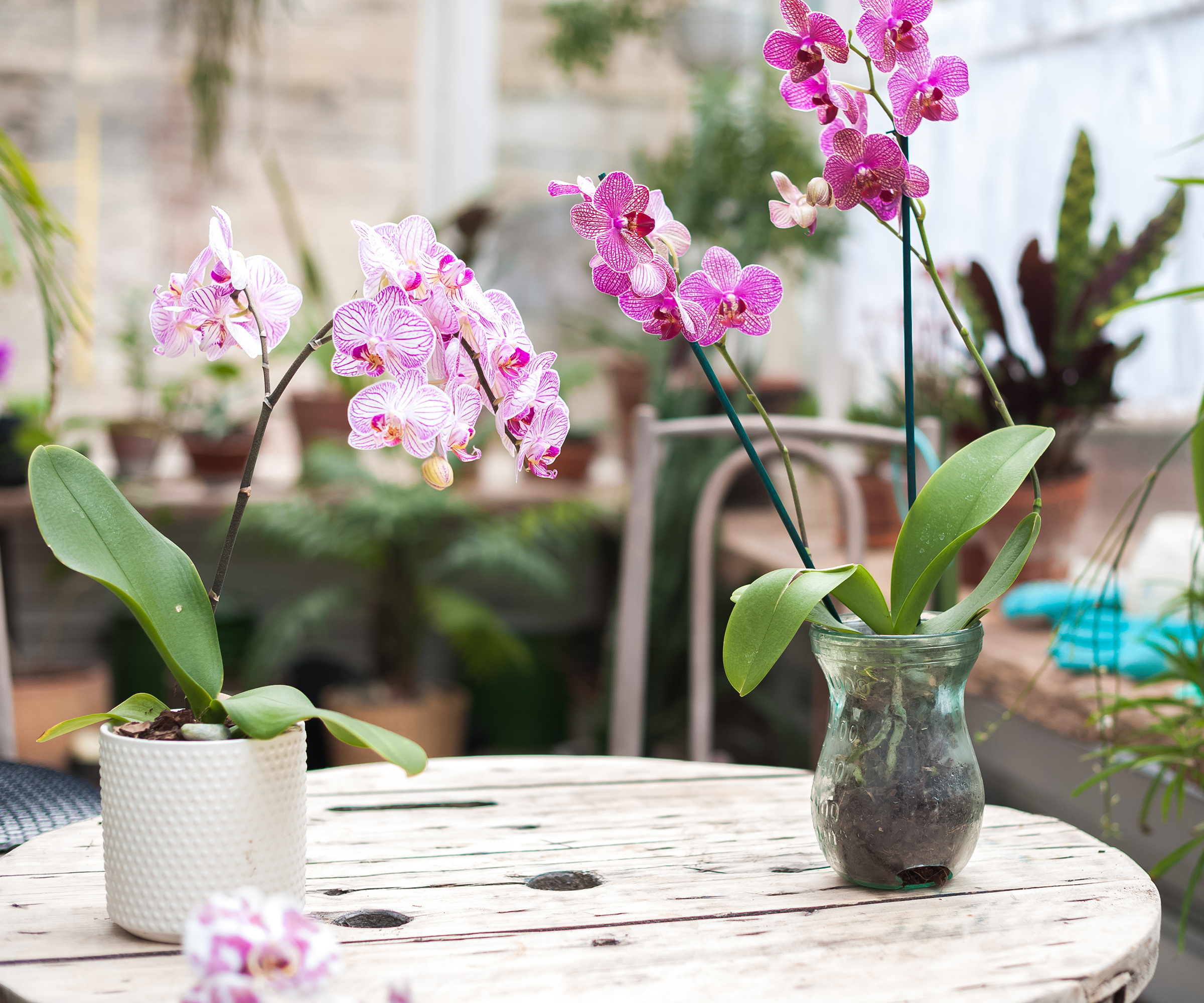
6 reasons your orchid flowers are falling off
How well it's cared for will determine how long orchids bloom. These are the main reasons your orchid might be dropping its flowers - and what you should do to resolve the issues.
1. Incorrect watering
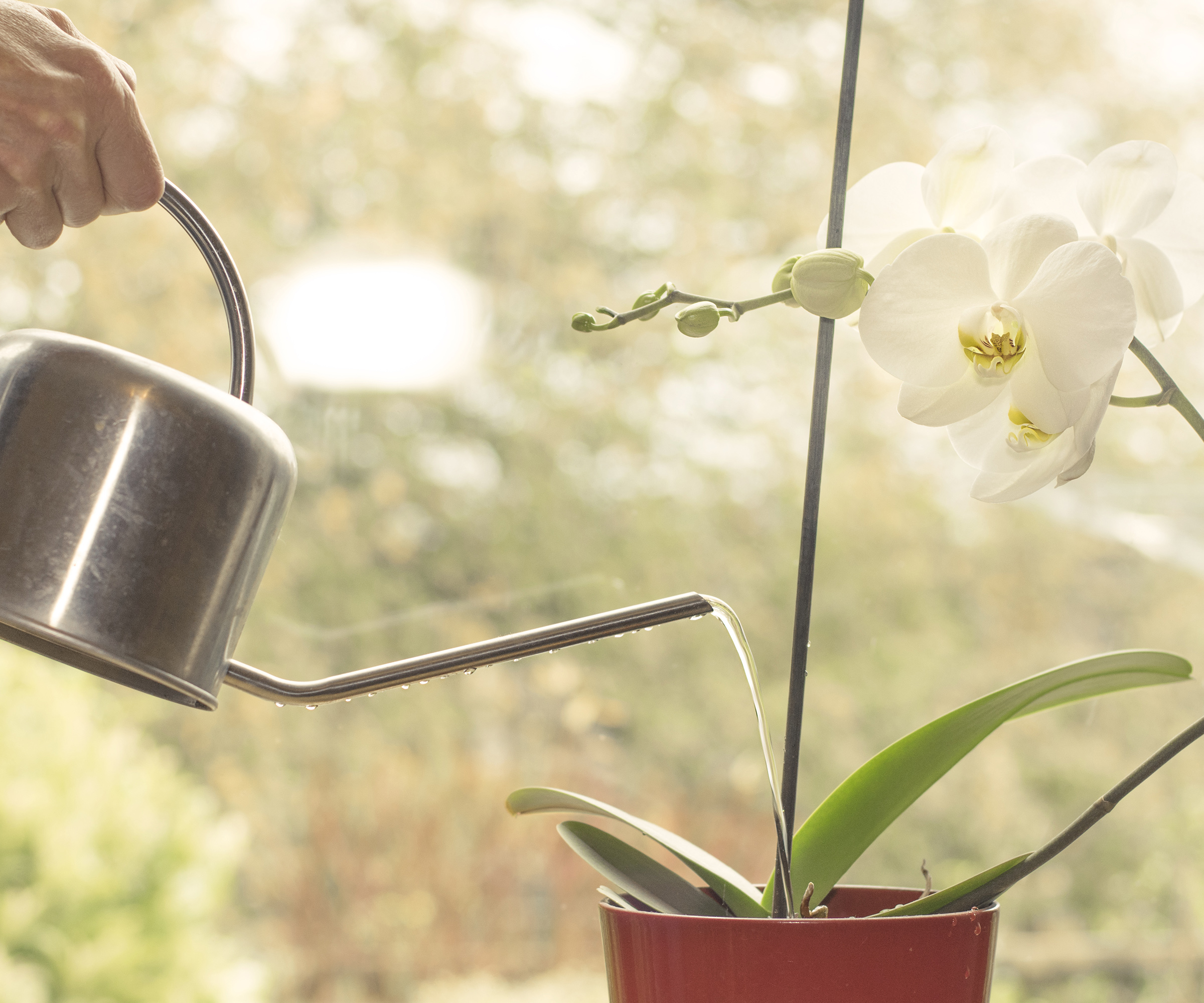
Orchids are different from most other houseplants; in the wild, they attach their roots to trees or rocks, drawing moisture from passing rains. How to water orchids properly involves ensuring they aren't given too much. This can lead to flowers dropping from the plant because of stress.
Plant expert and founder of Rosy Soil Chad Massura says: 'orchids prefer a good soak once a week when they begin to flower,' but you should take care you don't overdo it.
Design expertise in your inbox – from inspiring decorating ideas and beautiful celebrity homes to practical gardening advice and shopping round-ups.
It's also better to water your orchids by quickly saturating them with water from the tap and then letting the soil drain completely than watering them a little every day. Following these watering tips is a good way to get your orchid to rebloom.
2. Incorrect potting mix
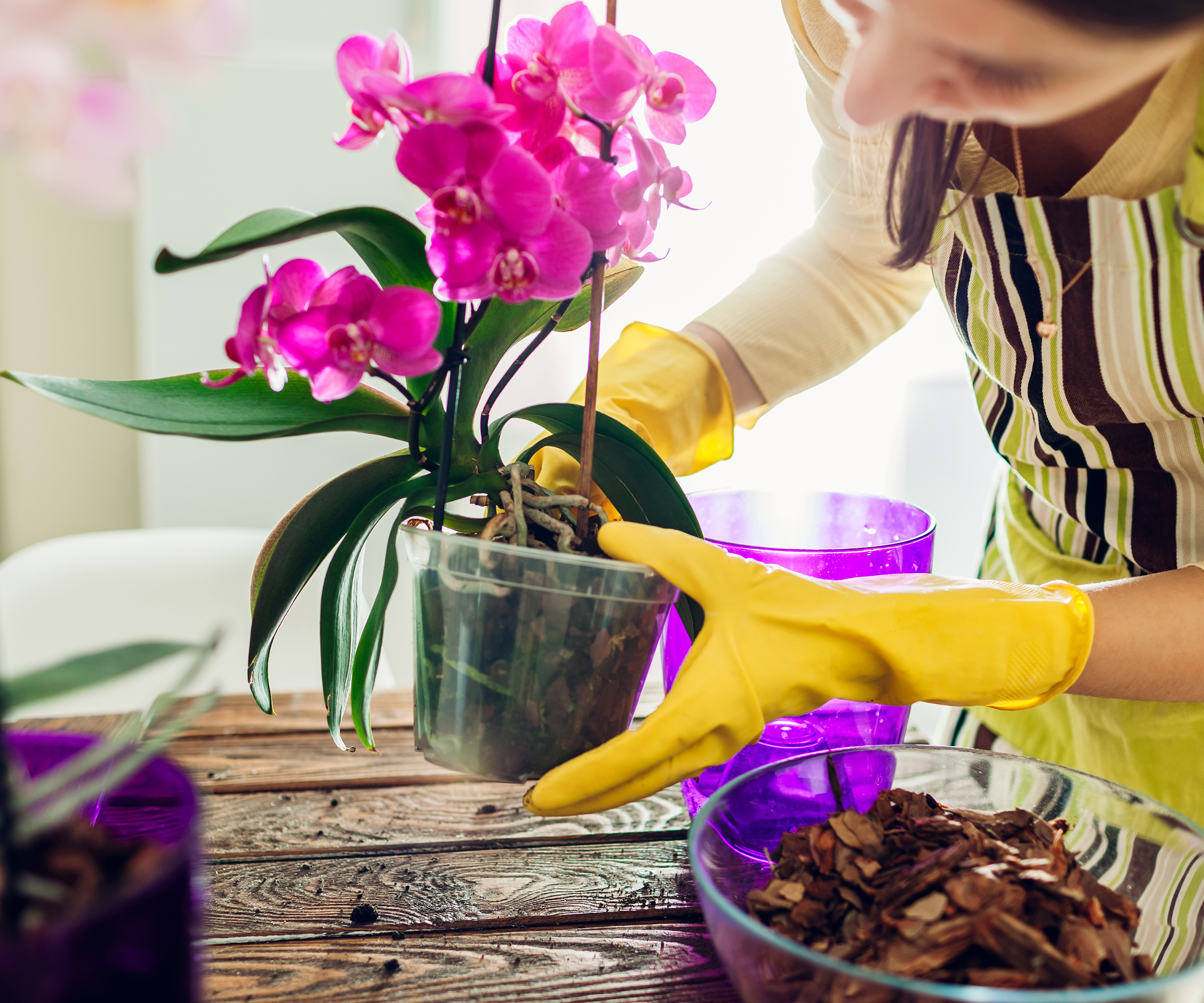
Another, related, problem of orchids wilting and dropping their flowers is an incorrect potting mix.
Chad Massura explains that 'a potting mix that holds too much moisture in between waterings will lead to root rot resulting in flower loss.'
The solution he says, is to look for a potting mix that holds moisture without being too dense. 'Potting soils that use earth-positive ingredients like biochar provide a light and airy mixture with an impressive water-holding capacity,' says Chad.
If in doubt, you can buy specialist orchid potting mix, such as the ones below.
Shop orchid potting mix

Chad Massura is the founder of Rosy Soil, a specialist supplier of sustainably produced soil, including specialized blends for indoor plants.
3. Large temperature fluctuations
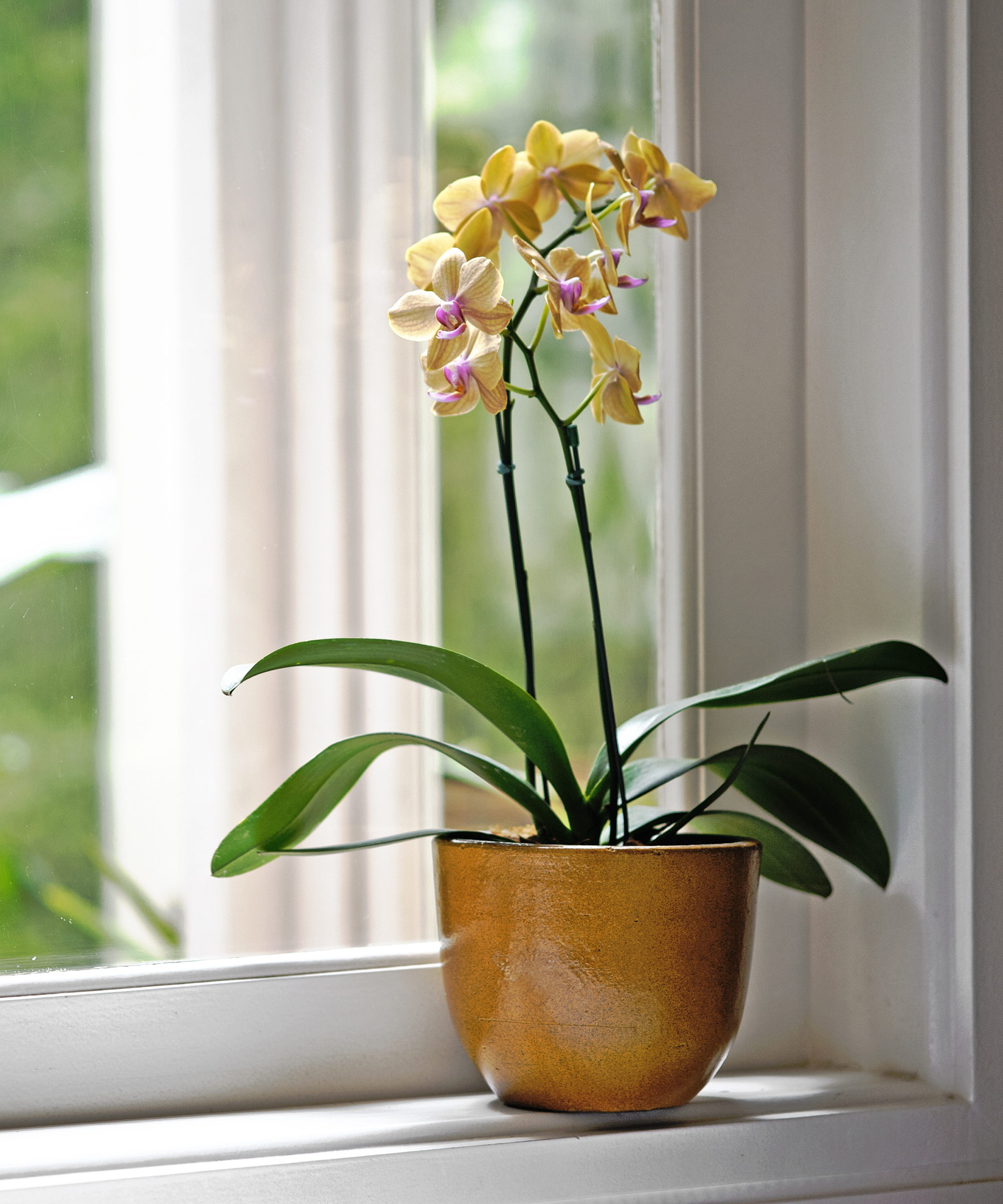
Orchids are very sensitive to drafts and large temperature fluctuations where they are kept, which can cause them to drop their flowers.
Ideally, keep your orchids in a room where the temperature does not fall below around 75˚F during the day or below 65˚F at night. Don't keep your orchid next to a window that's left frequently open either.
4. Insufficient light
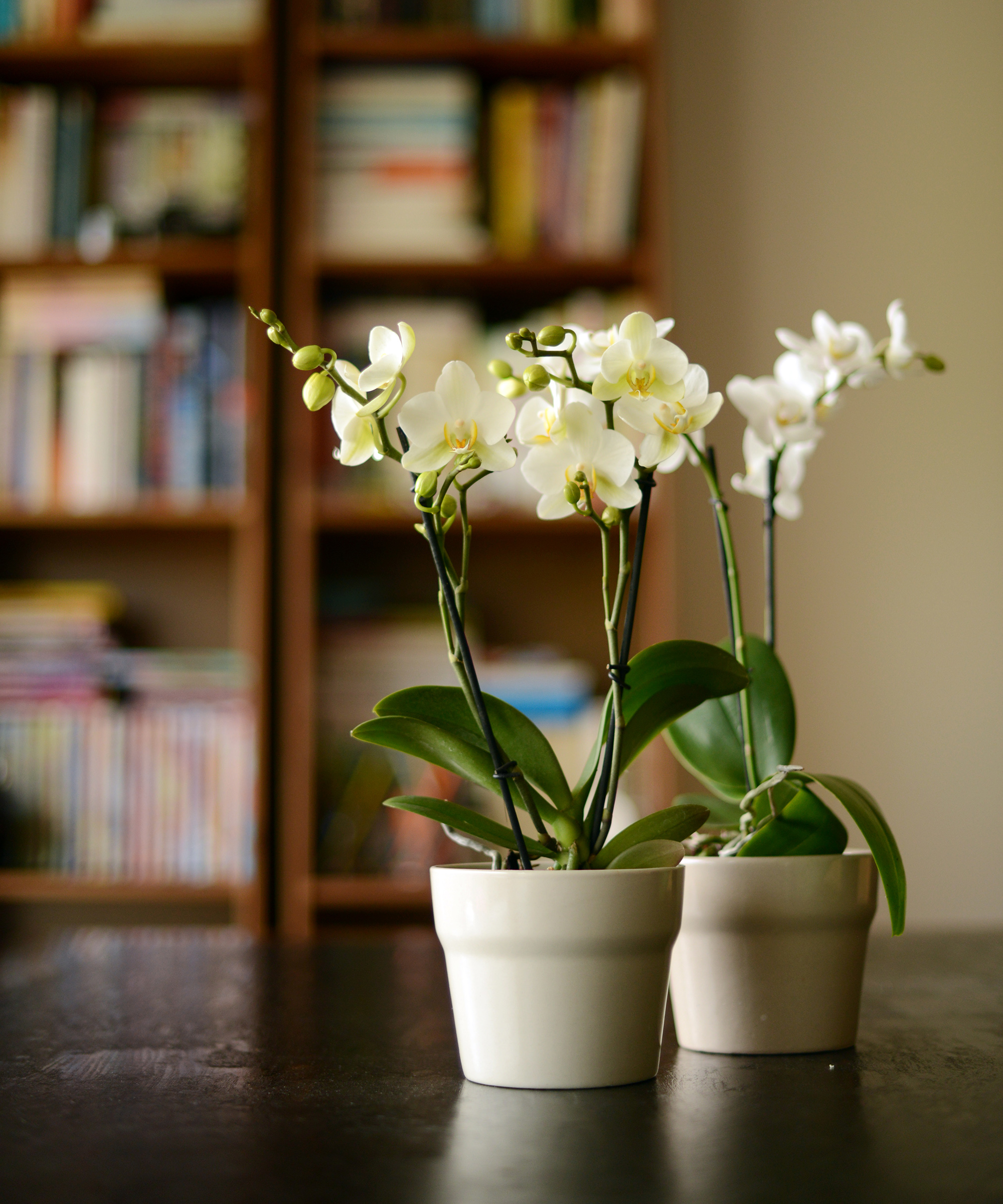
Like all other flowering plants, orchids need plenty of bright light to produce flowers. They're not a good choice for a low light indoor plant, so if your orchid is far away from a window and dropping flowers, move it closer to or onto a windowsill.
Be careful not to expose your orchid to direct sunlight as that can also stress out the plant. Always aim for bright, indirect light.
5. Insufficient humidity
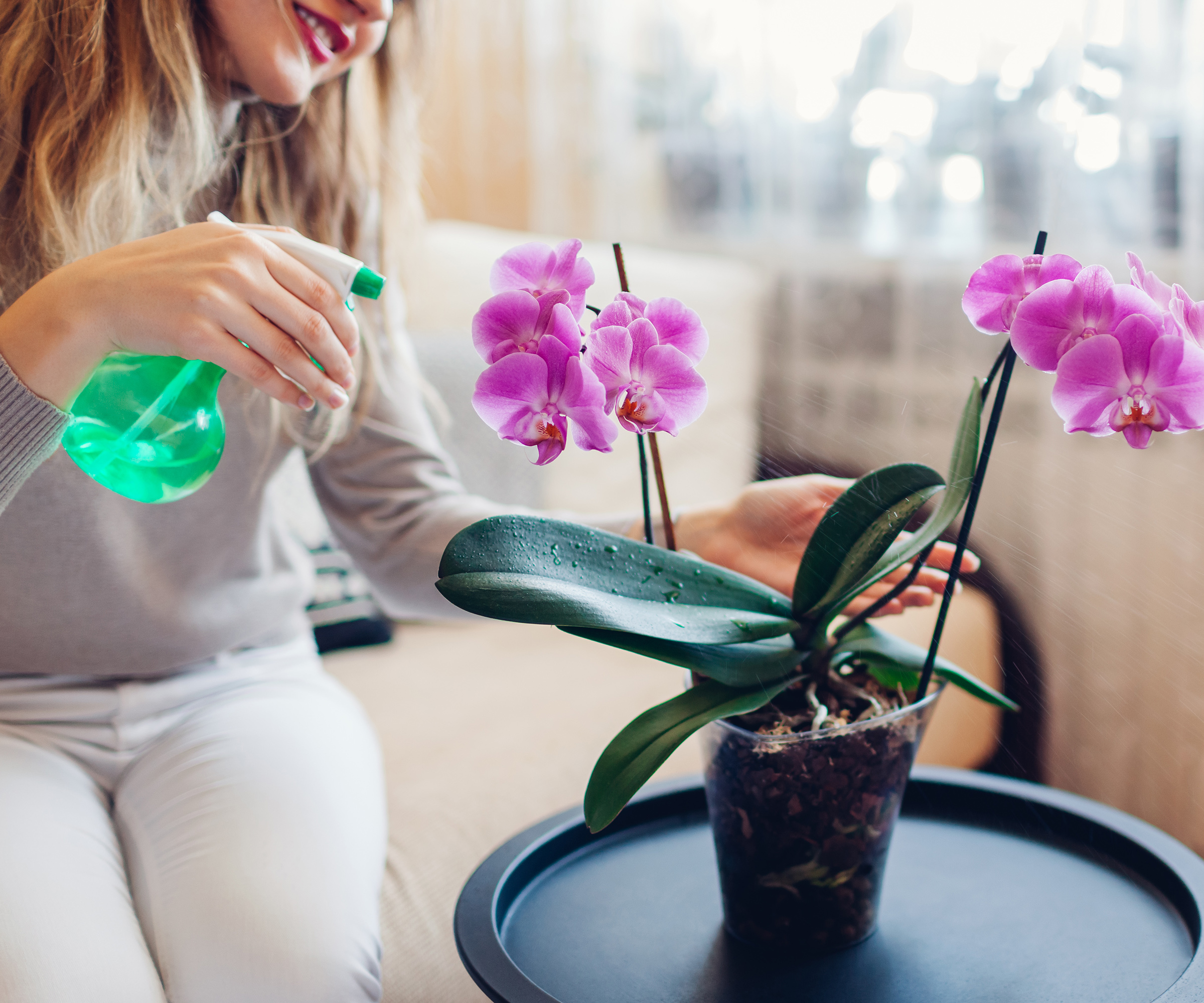
Orchids can drop their flowers and flower buds if they experience drought stress due to low humidity. This saps moisture from the leaves, roots, and flowers, and if the potting medium dries out completely the flowers and flower buds will begin to drop.
Getting a plant humidifier can help to solve this problem. You can also try growing your orchid as a bathroom plant as it will appreciate the humid environment, providing the room has natural light and isn't cold.
6. It's finished its flowering season
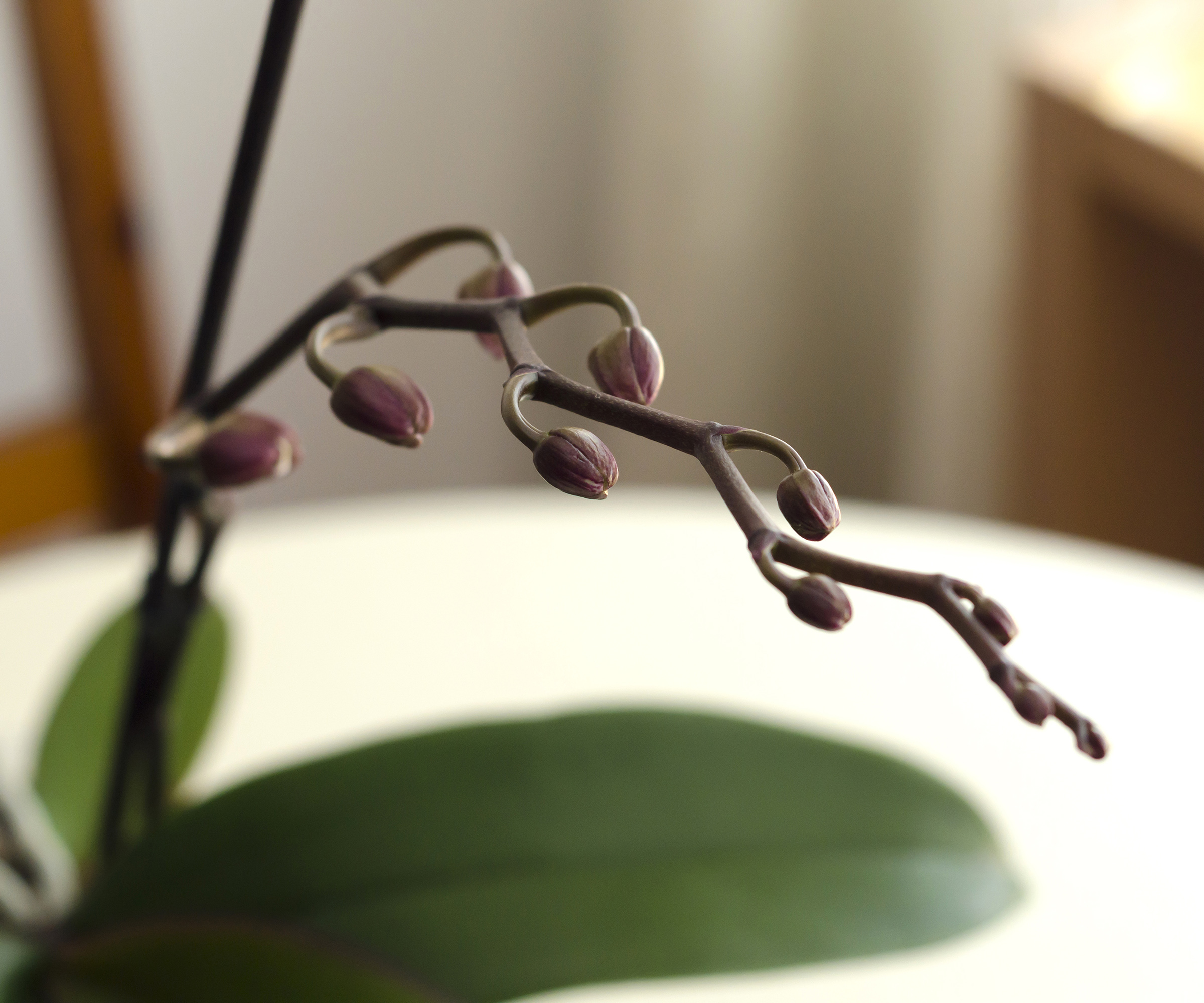
Orchids don't bloom forever. So if you've tried all these things and to no avail, it may just be that your orchid has come to the end of it's flowering season. In order for it to rebloom you will need to prune an orchid down to encourage new growth.
Continue to give it everything it needs, water orchids with rainwater where possible and keep humidity levels high. Dormancy can last for months, so be patient until blooms reappear again.
FAQs
What should I do if my orchid's flowers have fallen off?
Lisa Basset, owner of Gardening FAQs, advises the following: 'Leave the flower spike (or stem) alone, trim it down to a node, or cut it off completely. Clip the flower spike off at the plant's root end to remove it completely. If the present stem begins to turn brown or yellow, this is unquestionably the direction to go.'
Of course, if your orchid is succumbing to root rot, you'll need to treat that problem and repot your orchid. You can trim off any roots that have gone black: healthy orchid roots look fleshy and white and turn green when they're saturated with water.
Pruning an orchid correctly will also help to tidy it up and encourage your plant to produce more blooms in its next growing season.

Lisa has been an avid gardener for over 30 years. She loves writing, talking and living in the garden. Gardening FAQs was created to inspire more people to be passionate about their plants, both indoors and outdoors.
If you've had success with your tropical flowers, why not learn how to propagate orchids and get even more blooms for the next flowering season.

Anna is a professional writer and academic. She taught English Literature for several years before joining Future where she wrote for Real Homes, Homes & Gardens and Livingetc for four years. She is a regular contributor for Parade Home, BiggerPockets, and many other publications. In her spare time, Anna enjoys hiking and gardening.
